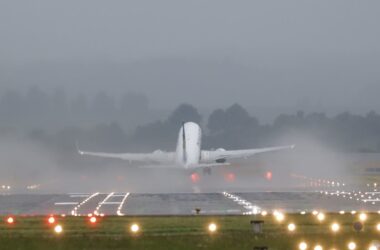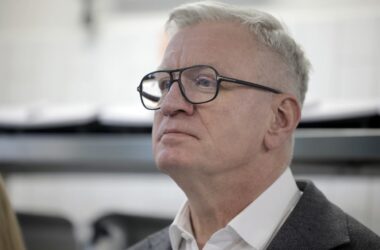Janusz Onyszkiewicz, a former Polish defense minister, discusses Russia’s military threats and NATO’s preparedness in a Deutsche Welle interview.
Unforeseen Threats and NATO’s Role
Janusz Onyszkiewicz, former Polish defense minister, admitted he never expected war near Poland’s borders but acknowledged the need for NATO membership due to Russia’s instability. He noted that Russia’s reduction of its military forces to 800,000 soldiers was once seen as reasonable, but the 2014 annexation of Crimea highlighted a shift back to imperial ambitions.
Onyszkiewicz reflected on Russia’s 2008 invasion of Georgia, which he described as a warning that was not heeded. He quoted Lech Kaczyński’s prescient warning that Russia’s aggression would escalate from Georgia to Ukraine, the Baltics, and potentially Poland.
NATO’s Preparedness and Risks
Onyszkiewicz emphasized that NATO membership was sought as a security guarantee, but he now believes Russia may be willing to test these assurances. He stressed that any attack on NATO would be met with a severe and costly response, though he acknowledged the non-binding nature of the Budapest Memorandum compared to NATO’s Article 5.
He noted that NATO’s military readiness has been challenged, particularly in ammunition shortages, but production is now ramping up. Companies like Rheinmetall are expanding production, and Poland and other allies are increasing their military capabilities.
Ukraine’s Role in Deterring Russia
Onyszkiewicz argued that as long as Ukraine resists, Russia remains tied down, reducing the immediate threat to NATO. He expressed confidence that Ukraine will not surrender, buying time for NATO to strengthen its defenses. He also noted that Ukraine’s territorial claims will continue to constrain Russia’s military ambitions.
The Future of Warfare
Onyszkiewicz discussed the evolving nature of warfare, including the use of drones, electronic warfare, and artificial intelligence. He highlighted that modern conflicts require rapid adaptation, as seen in Ukraine, where low-cost drones can neutralize high-value targets.
He speculated that future wars may involve new technologies like laser weapons or electromagnetic artillery, with AI playing a crucial role. He emphasized the ongoing arms race between offensive and defensive technologies.
Preventing Future Conflicts
Onyszkiewicz stressed the importance of democratic resilience and public awareness in preventing future aggressions. He warned against complacency, citing the lessons of Munich 1938, where appeasement failed to prevent war. He noted that Putin miscalculated by expecting a similar response to his aggression.
Recent Incidents and NATO’s Response
Onyszkiewicz commented on recent Russian drone incursions into Polish airspace and a Russian fighter jet’s flyover of Estonia. He described these as deliberate acts aimed at intimidating Poland and testing NATO’s resolve, though he does not believe they constitute a direct attack under Article 5.
He suggested that NATO would respond with escalating measures if such incidents continue, but only after a pattern of aggression is established.










